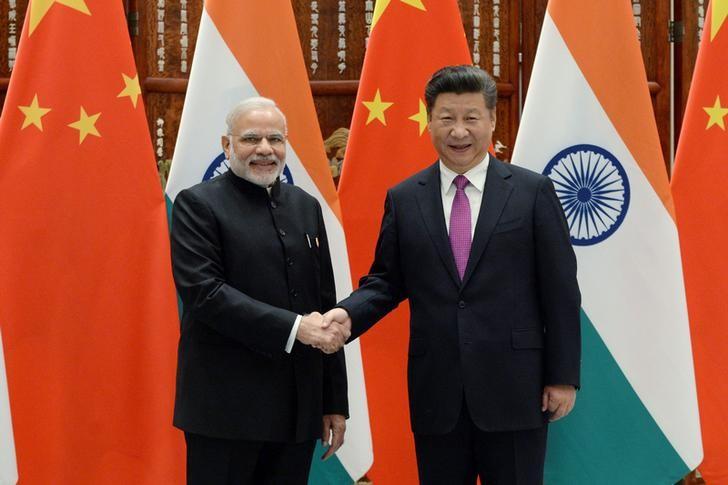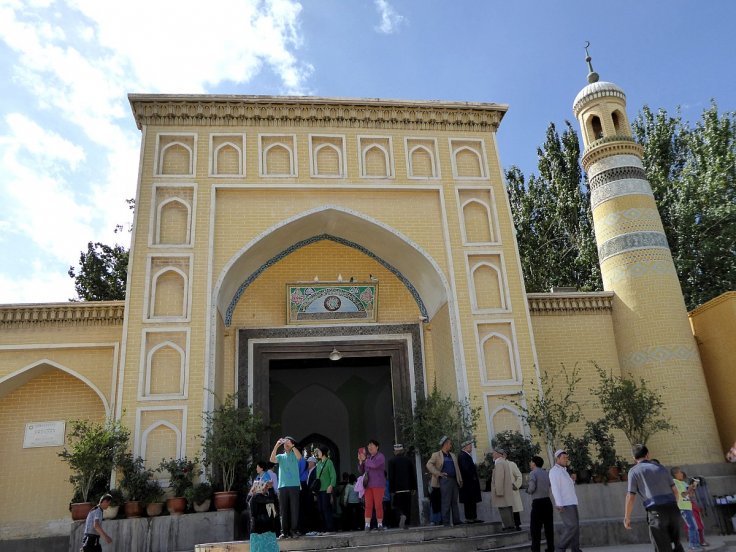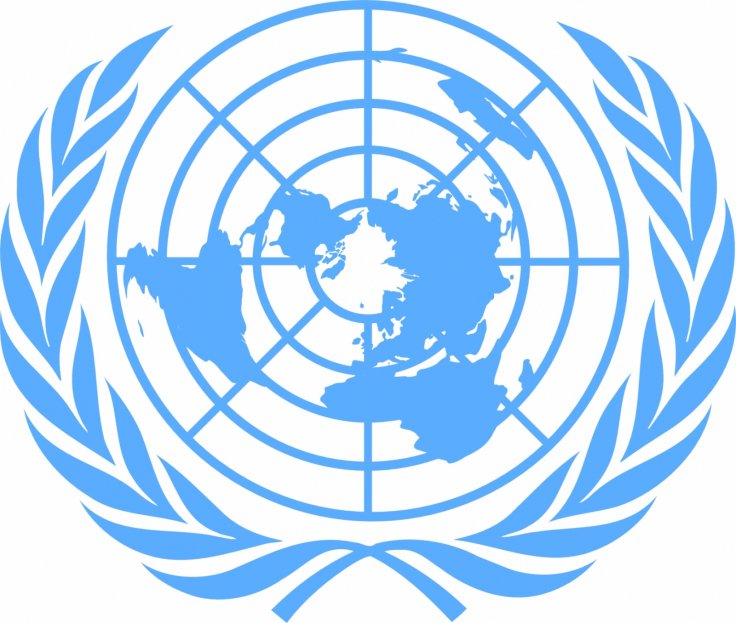India abstained from a key UN vote on Thursday, clearly showcasing the bold and purpose-driven foreign policy under Prime Minister Narendra Modi.
India's decision to abstain from the voting on a draft resolution in the UN Human Rights Council (UNHRC) essentially helped arch-rival China. The Indian vote indirectly supported China beat a western-backed motion that demanded a debate on the human rights situation in China's restive Xinjiang region.

Boldness and Direction
India has clearly shown boldness in steering away from a perceived anti-China position, underscoring the long-term need to settle regional rivalries and form an Asian front against the quirks and conceits of western diplomacy.
At the same time, the decision to offer nuanced support to Beijing will also bolster the Indian Opposition's case that New Delhi is not supporting the Uighur Muslim minority community in China's Xinjiang.
West Targets China
New Delhi did not offer any explanation for its decision to abstain from the voting on the draft resolution, which was brought in by Canada, Denmark, Finland, Iceland, Norway, Sweden, UK and USA, and supported by half a dozen other nations including Turkey.
It has been pointed out that India's stance was based on the belief that country-specific resolutions at the UNHRC are counterproductive.
The western resolution against China raised the alleged oppression of the Uighur minority in Xinjiang and sought to hold a "debate on the situation of human rights in the Xinjiang Uighur Autonomous Region of China."
The Human Rights Watch said it was the first time ever that the UN's top human rights body mooted a proposal to debate the human rights situation in the Xinjiang region.
Close Vote and a China Win
The resolution was rejected by the UNHRC after a close vote. While 17 members of the 47-member Council voted for the motion, 19 members voted against it. The abstentions of major powers like India, Brazil and Mexico helped China defeat the resolution. In all, 11 countries abstained from the vote.
India's Moral Burden Alone?
India, with its large Muslim minority, has always carried on its shoulders the moral burden of calling out the oppression of minorities anywhere in the world, especially in Palestine and Xinjiang. The long-entrenched notion that China is India's primary adversary has amplified domestic expectations that India will espouse the Uighur cause to hurt China. However, that is not what happened.

India does not any longer look up to the West for foreign policy clues. This was evident in the way New Delhi handled the western resolutions against Russia in the United Nations. India and China, the two great Asian powers, took identical positions to thwart the West's assertion that there is only a single, blinkered way to look at and judge what is going on in Ukraine.
Future of India-China Ties
It may be premature to say that an India-China axis will emerge, but that's not an impossibility in the long run. Of course, New Delhi and Beijing have to traverse a tough road and settle differences on various fronts before any meaningful collaboration can be worked out.
However, a multitude of factors will play to their advantage if they choose to find common ground. The economic and military asymmetry between the great Asian powers is narrowing down. In about a couple of decades, there will be little differentiating India and China in terms of economic and military might.
Differences and Common Ground
And then there are ideological elements that go into the mix. India is a successful, pluralistic and secular democracy, while China is neither a democracy nor does it uphold political pluralism. However, China is a secular society, it is NOT driven by the absolutist religion-driven politics that has become the bane of a handful of South, South-east and Central Asian nations.
Similar Challenges
In fact China, albeit through controversial means, makes it clear that religious radicalization and religious extremism are not tolerated. India is witnessing, both within and in its immediate neighborhood, the dangers of religion becoming a political movement.
Who Threw Uighurs Under Bus?
Obviously, the government's detractors will pounce on it, leveling the oversimplified argument that India has 'thrown the Uighurs under the bus'. If India has, indeed, who else have done so? Have the Islamic nations on the UNHRC taken a tough stance on China and supported the Uighur Muslims?

It is good to have a look at the Islamic/Muslim majority countries that have 'thrown the Uighurs under the bus'. They are Pakistan,Qatar, Indonesia, Sudan, United Arab Emirates, Uzbekistan, Kazakhstan, Mauritania, Namibia and Senegal.
India Can Ignore OIC Sloganeering
These ten nations, all of which are members of the Organization of Islamic Cooperation (OIC), could have stood for the Uighur Muslim minority. They didn't. Yet they do always gang up against India when New Delhi deals with matters crucial to its internal security. When India changed the status of Jammu and Kashmir, New Delhi was targeted and vilified. When a television panelist made remarks that were communally sensitive, the Indian government was taken to task by the OIC. Half as much enthusiasm on minority rights, if those were genuine, might have helped these OIC members take a different line in UNHRC and vote against China.
That they did not points to their own real perceptions on minority rights. It's a slogan that they use when it suits them. Should India be worried about such hollow sloganeering?
[The author is Managing Editor at International Business Times. Opinions expressed in the article are personal]








